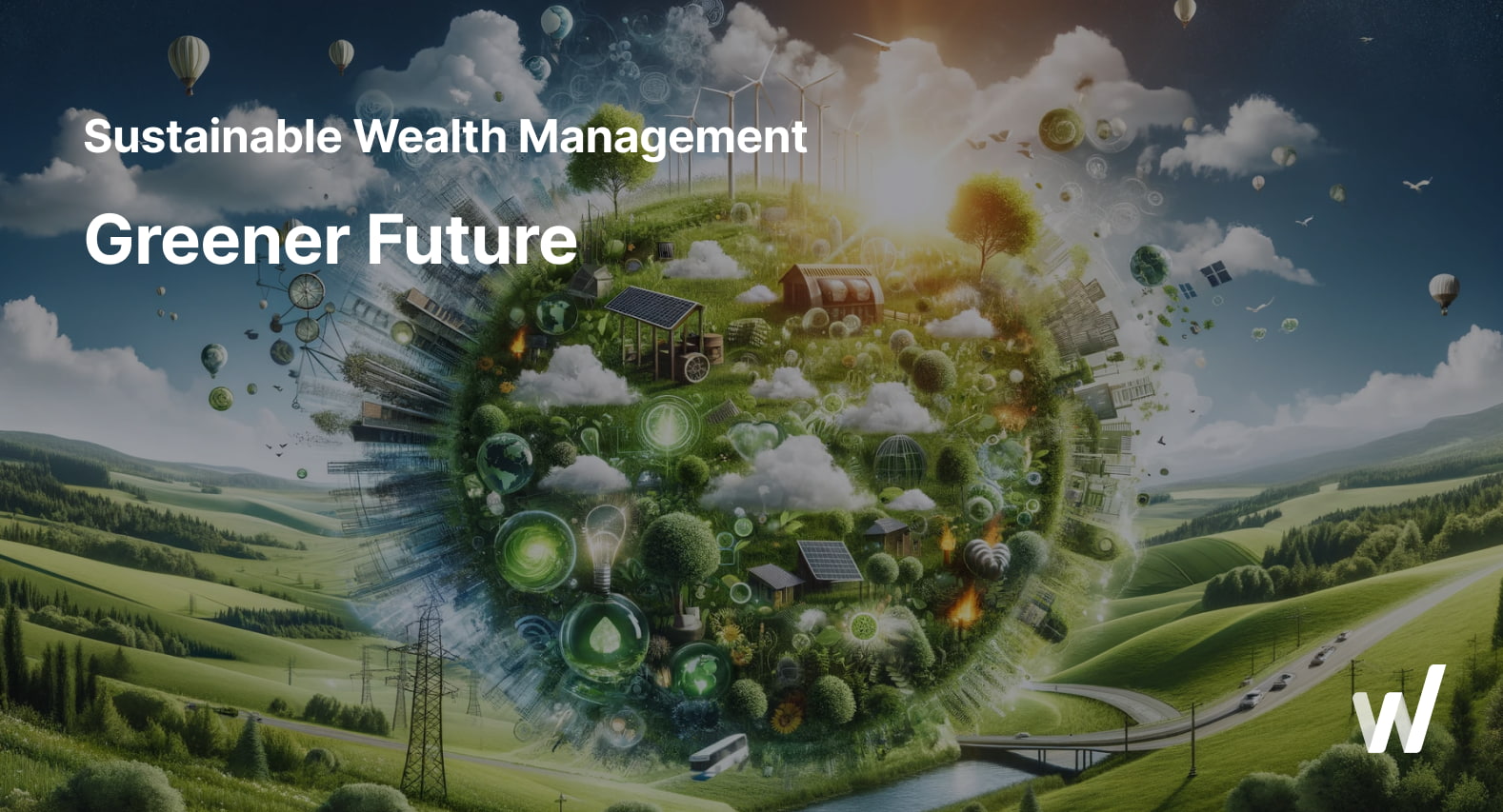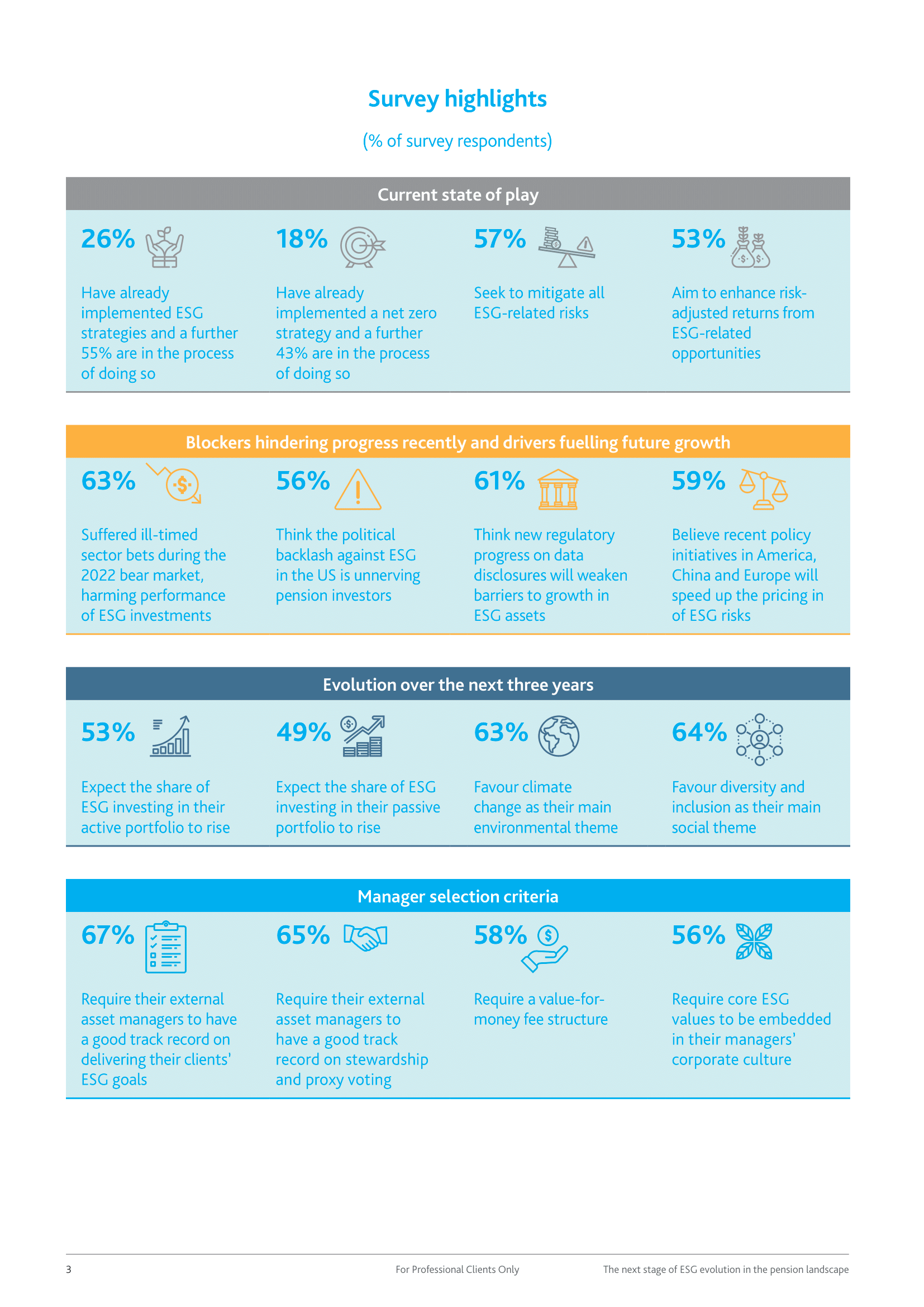Greener Future
This article explores how sustainable wealth management evolves through ESG investing, COP21 alignment & green pension strategies.

The concept of wealth management has evolved beyond traditional financial paradigms. Beyond pure financial gain, individuals and institutions are increasingly recognising the importance of aligning their wealth management strategies with sustainability goals. This shift towards a greener future is an ethical imperative and a strategic move recognising the interconnectedness of financial prosperity and environmental well-being, especially in global initiatives such as COP21 (Climate Change Conference).
A global push for sustainability
Several countries are at the forefront of driving a green future in the investment world, actively prioritising sustainable and environmentally conscious practices.
- Nordic countries (Denmark, Sweden, Norway, Finland, Iceland): These countries are known for their commitment to renewable energy and sustainability. Investment in wind power, hydropower and other green technologies is widespread, and the Nordic countries consistently rank high in global sustainability indices. The Nordic countries rank in the top 5 (Iceland is #1) in Technology Review's 2023 Green Future Index, with high scores in clean innovation, carbon emissions and renewable energy use.
- Germany: A pioneer in the transition to renewable energy, Germany is a leader in sustainable investment. The country's Energiewende policy emphasises the shift to cleaner energy sources, and German investors are increasingly focusing on green projects.
- The Netherlands: The Dutch government and financial institutions actively promote green finance. The country is a hub for sustainable finance initiatives, and Dutch investors are increasingly incorporating ESG criteria into their decision-making processes.
- United Kingdom: The UK has committed to sustainable finance through initiatives like the Green Finance Institute. UK investors and institutions are increasingly focusing on green bonds and ethical investments.
- France: With initiatives such as the [Paris Agreement] (https://www.un.org/en/climatechange/paris-agreement), France has shown a solid commitment to the fight against climate change. French financial institutions are actively involved in sustainable finance, and the country is a leader in promoting green bonds.
- Canada: With abundant natural resources, Canada has invested in clean energy projects. Canadian investors increasingly recognise the importance of sustainability, and the government has outlined plans for a sustainable finance strategy.
- Japan: Japan has made progress in green finance, and Japanese investors are increasingly incorporating ESG principles into their investment strategies. The government invests heavily in hydrogen fuel cell technology and renewable energy and aims to achieve carbon neutrality by 2050.
.png)
The influence of COP21 on investment strategies
At its core, wealth management is about carefully orchestrating financial resources to achieve long-term financial goals. In the wake of the COP21 agreement, which highlighted the urgent need for global cooperation to address climate change, the financial sector has recognised that sustainable investments can deliver both economic returns and a positive environmental impact. This intersection of asset management and sustainability has given rise to sustainable asset management.
Sustainable asset management integrates [environmental, social and governance (ESG)](https://www.techtarget.com/whatis/definition/environmental-social-and-governance-ESG#:~:text=Environmental%2C social and governance (ESG) is a framework used,various sustainability and ethical issues.) criteria into investment decisions. ESG scores, which evaluate a company's performance in these areas, have become a key metric for assessing the sustainability of investments, providing investors with a comprehensive view of how companies manage their impact on the planet, treat their employees and uphold governance standards.
- The green investment landscape encompasses many opportunities, from renewable energy projects and [green technologies](https://www.investopedia.com/terms/g/green_tech.asp#:~:text=Green tech–or green technology,%2C material science%2C and hydrology.) to companies with robust sustainability practices. It is not easy, but it is possible - at least $4 trillion a year will need to be invested in renewable energy by 2030 to enable us to achieve net zero emissions by 2050.
- In the post-COP21 era, investors actively seek ways to support the transition to a low-carbon economy, recognising that these investments mitigate environmental risks and align with the global commitment to limit global warming. Check out the Climate Action Tracker to see if your country complies with the Paris Agreement.
- Asset managers are critical in guiding clients through this evolving landscape, using ESG ratings as a critical tool. By including companies with high ESG scores in portfolios, asset managers can help clients align their financial goals with sustainable practices. The value of assets allocated to ETFs that incorporate ESG objectives into their strategy reached $403 billion in November 2022, mainly in Europe and the United States.
- Climate change and environmental degradation pose real and tangible risks to economies and businesses. By incorporating sustainable practices, considering ESG ratings and aligning with the goals of COP21, investors can proactively mitigate these risks and promote long-term portfolio resilience.
- Companies with strong ESG performance often demonstrate better risk management practices, greater operational efficiency and increased innovation. These factors contribute to the overall financial health of the companies in which investors place their trust, further strengthening the argument that sustainability is not at odds with wealth creation but rather an integral part of it.
Pension funds also have an impact on a green future
Global pension assets amount to US$47.9 trillion. In the UK, this amount is over £2.6 trillion. While 68% of UK savers want their investments to consider the impact on people and the planet and financial performance, only £1 in every £10 is invested this way. Most interestingly, greening your pension is 21 times more effective than giving up flying, becoming a vegetarian and switching energy suppliers combined.
There are many definitions of green investing among investors. However various pension funds can be part of a fund with a climate strategy. The world's largest pension funds are responding to climate risks and opportunities. A study by Columbia University's School of International and Public Affairs, in collaboration with the World Bank and the Sustainable Finance Institute, analysed pension funds from Canada, Japan, the Netherlands, Norway and the United States in terms of their regulatory environment, climate investment strategies and quantitative climate targets and/or disclosures.
- Canada Pension Plan Investment Board (CPPIB) ($420 billion) has integrated climate change into its energy, power, real estate and bond groups. They own 295 green-certified buildings in 25 countries. CPPIB also issues $109 billion in euro-denominated green bonds.
- Japan's Government Pension Investment Fund (GPIF) ($1.5 trillion) has focused its strategy on low-carbon index funds. As the largest public pension fund in the world, GPIF has invested more than $21.17 million in green bonds since 2019.
- The Netherlands Stichting Pensioenfonds ABP (ABP) ($465 billion) translates carbon goals into measurable action. They are committed to reducing the carbon footprint of their portfolio by 40% by 2025 and doubling their green real estate holdings.
- Norway Government Pension Fund Global (GPFG) ($1.4 trillion) focuses its process on transparency, clarity and alignment with government mandates. The fund holds 1.5% of the world's listed companies. It invests in three main areas: low-carbon energy and alternative fuels, clean energy and energy efficiency, and natural resource management.
- USA New York State Common Retirement Fund (NYSCRF) ($242 billion) is making major commitments to climate action and allocating funds to meet targets. They are shifting from investments in shale oil and gas to renewable energy. The fund has committed to a net zero portfolio by 2040.
The rise of ESG ETFs
An Exchange-Traded Fund (ETF) is a financial instrument that combines the diversification of a mutual fund with the tradability of a stock. ETFs track the performance of a specific index, commodity, bond or basket of assets, allowing investors to buy and sell shares on exchanges throughout the trading day. ESG ETFs provide a specific focus on ESG growth and impact. In the ESG ETFs: A Trend or a Fad? Podcast, speakers express optimism about the long-term resilience and transformative power of ESG investing, despite challenges such as greenwashing.
The global ESG ETF market is worth over $400 billion. In 2022, 65% of total flows into European ETFs went into ESG products, while in 2021, the same was true for 53% of flows. This finding is also confirmed by Deborah Fuhr, Managing Partner at ETFGI, when she said, "ESG ETFs are more of a European phenomenon compared to the typical ETF landscape".
Not just a trend but a paradigm shift
As we move into an era defined by environmental challenges and global initiatives such as COP21, the marriage of asset management, sustainability, and ESG scoring is emerging as a strategic imperative. Investors and asset managers alike recognise that the pursuit of financial prosperity need not come at the expense of our planet. Sustainable asset management that incorporates ESG scoring and aligns with the goals of COP21 is a way to build a greener, more resilient future.
The Amundi Research Center has researched the next stage of ESG development in the pension landscape. One of the key findings is that this is a changing ecosystem. While old-style capitalism focuses solely on profits, the ecosystem is being reshaped with the rise of ESG investing. 18% of the funds surveyed have already implemented a net zero strategy, while 43% are in the process. The survey also reveals the barriers to the process and how managers are selecting for this shift. 53% of funds expect the proportion of ESG investments in their active portfolios to increase.

By adopting sustainable investment practices, individuals and institutions can secure their financial future and make a meaningful contribution to the collective effort to address the pressing challenges of our time. According to Capital Group, only 13% of global investors see ESG as a fad that will eventually go out of fashion. So, in this era of conscious capitalism, integrating asset management, sustainability, ESG scoring, and global initiatives such as COP21 is not just a trend but a paradigm shift that holds the promise of a more sustainable and equitable global economy.
Subsribe to our weekly newsletter
Get our Sunday morning newsletter with exclusive deals, portfolio updates, and private market insights delivered straight to your inbox.



.jpg)
